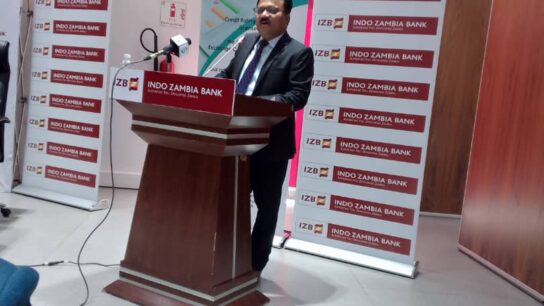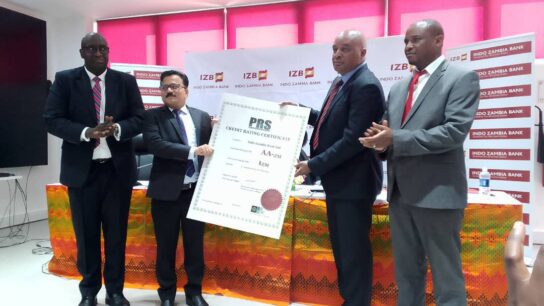• From 2016 the budget to education in terms of the share of the education budget has been on a downward trend.
• 13.9 percent allocation in 2023 is not enough but it is a good trajectory.
• Government should continue to consistently to increase the share of the national budget by 3.5 percent.
Zambia National Education Coalition (ZANEC) has urged government to continue increasing the education budget at 3.5% so that the country can attain the 20% international miminum threshold by the year 2025.
Speaking in an interview with Money FM News, ZANEC Executive Director George Hamusunga stated that the organization is happy with government’s decision to raise the allocation to the sector from 10.4% in 2022 to 13.9% in 2023, which represents 3.5% increase.
Mr. Hamusunga said despite the education budget having been reducing in the last six years from about 20.2 percent in 2015 to the current 10.4 percent, the 13.9 percent allocation in 2023 is not enough because it is below the international minimum threshold of 20 percent.
He added that if government continues to increase the share of the national budget by 3.5 percent in 2024 and 2025 respectively, the country will be assured of reaching 20.5 percent by 2025.
“From 2016 the budget to education in terms of the share of the education budget has been on a downward trend from about 20.2 percent in 2015 to the current 10.4 pecercent, representing 43 percent decrease in the share of the budget in the last 6 years.”
“The 13.9 percent allocation in 2023 is not enough because it is below the international minimum threshold of 20 percent. But we are saying that this trajectory is good because if government can continues consistently to increase the share of the national budget by 3.5 percent, in 2024 and another 3.5 percent in 2025 then we are assured of reaching 20.5 percent of the national budget by 2025,” Mr. Hamusunga stated.
He further said delivery of quality education in Zambia can only be achieved if the country attains the 20 percent level of funding to the sector, given the demands that have come as a result of the introduction of free education.
“These are the demands relating to the education input of quality that we need to invest in that includes classrooms, teachers, teachers’ houses, desks as well as water and sanitation facilities, just to mention but a few,” he said.
Meanwhile, Mr. Hamusunga said governemnt’s plans to recruit 4, 500 additional teachers in 2023 will contribute towards the provision of quality education in public schools.
He also welcomed the K40 million that has been allocated towards the inspection of schools in next year’s budget, as it will enhance quality service delivery in the education sector.
“Government should ensure that teachers who will lose their jobs through resignation or promotion to management positions are replaced immediately. This will enable the recruitment of an additional 8,663 teachers based on the current attrition rate.”
“Government must ensure that at least 25% of the teachers employed next year are Early Childhood Education teachers, with majority from the remaining 75% being secondary school teachers,” Mr. Hamusunga added.
In the proposed 2023 national budget, Ministry of Finance has allocated K23.2 billion or 13.9 percent of the total budget to the education sector
Of the allocated amount, K1.5 billion is for construction, rehabilitation and completion of ongoing school infrastructure while K358.4 million is for the recruitment of 4,500 additional teachers.
In the 2022 budget, government allocated K18.1 billion in 2022 on the education sector, representing 10.4 percent of the total national budget.







